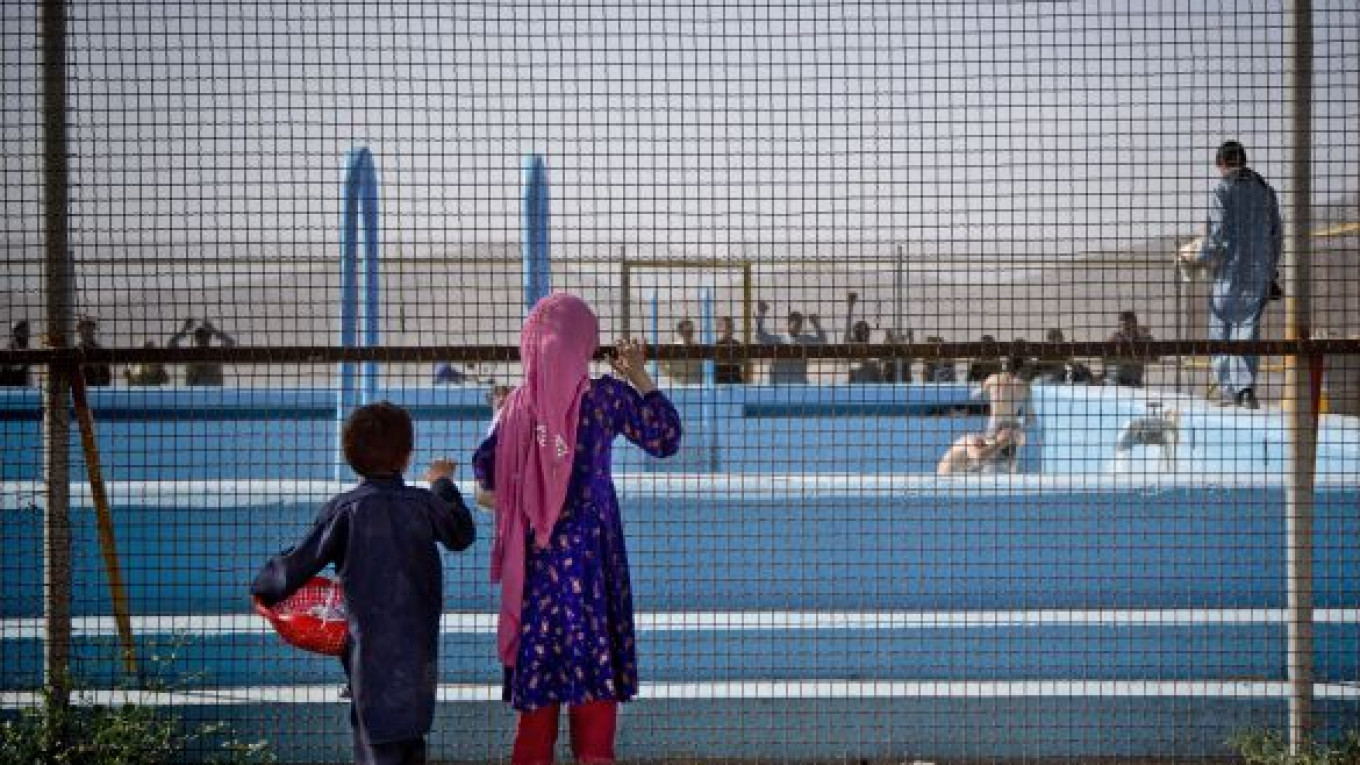KABUL — Russia, predicting instability once NATO-led troops withdraw from Afghanistan by the end of next year, is considering deploying border guards on the Tajik-Afghan border, Moscow's envoy to Kabul said.
Moscow, still sore from its disastrous, decade-long war in Afghanistan in the 1980s, is increasingly concerned by what it describes as the combined threat of narcotics and terrorism reaching Russia through Central Asian countries.
"We prefer to tackle this problem on the Afghan border to stop these threats," Andrei Avetisyan said in an interview late last week at the Russian Embassy in Kabul.
The embassy's sprawling grounds host a Soviet-built teal Volga car recovered in Afghanistan by embassy staff and a memorial to the 15,000 Soviet lives lost in the war against mujahideen fighters.
"We used to have a serious presence on the Afghan-Tajik border and, at that time, the situation there was much better, so it would be in the interest of both Russia and Tajikistan and even Afghanistan if Russia is present there," Avetisyan said.
He said such a presence would involve Russian border troops, but declined to give a number.
Russian border guards used to patrol the Tajik frontier with Afghanistan but left in 2005. Uzbekistan and Turkmenistan also border Afghanistan to its north.
Avetisyan said any agreement on border troop deployment would "of course" have to be agreed upon with Tajikistan.
Intensifying violence across Afghanistan, less than two years before foreign combat troops withdraw, has sent tremors of worry across Russia, which is battling an Islamist insurgency in its North Caucasus as well as widespread use of heroin and a huge increase in the incidence of HIV and AIDS.
Russia is involved in a series of ambitious construction projects in Afghanistan, including rebuilding its Soviet-era cultural center, aimed at fostering stability in the country which produces 90 percent of the world's opium.
Avetisyan, who also worked for the Soviet government in Kabul during Moscow's war, said fighting in northern Afghanistan — traditional bastions of anti-Taliban power groups — offers proof of a "general destabilization of the situation." After the dispirited Soviet exit in 1989, the Afghan communist government collapsed, leading to infighting between warlords and a civil war that reduced much of Kabul to rubble and paved the way for the Taliban's rise to power in 1996.
"What have they been doing for the past 12 years?" Avetisyan asked of the current campaign, the United States' longest war.
"Fighting against terrorism with 150,000 troops without any success," he said, adding that a continued troop presence after 2014 "doesn't make any sense."
The U.S. is widely expected to retain nine bases across Afghanistan after 2014.
Avetisyan said any future U.S. military role in the country must be an international legal arrangement approved by the United Nations Security Council, in which Russia has veto power.
"A long-term or permanent military presence of a foreign force will be a reason of concern for us, especially if they are military bases. We would like to know what the purpose is and we still don't have answers to these questions," he said.
Related articles:
A Message from The Moscow Times:
Dear readers,
We are facing unprecedented challenges. Russia's Prosecutor General's Office has designated The Moscow Times as an "undesirable" organization, criminalizing our work and putting our staff at risk of prosecution. This follows our earlier unjust labeling as a "foreign agent."
These actions are direct attempts to silence independent journalism in Russia. The authorities claim our work "discredits the decisions of the Russian leadership." We see things differently: we strive to provide accurate, unbiased reporting on Russia.
We, the journalists of The Moscow Times, refuse to be silenced. But to continue our work, we need your help.
Your support, no matter how small, makes a world of difference. If you can, please support us monthly starting from just $2. It's quick to set up, and every contribution makes a significant impact.
By supporting The Moscow Times, you're defending open, independent journalism in the face of repression. Thank you for standing with us.
Remind me later.






